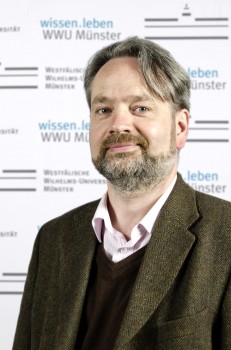
Scientists of Münster University evaluate transatlantic relations
Separation of powers set to face a tough test
Prof. Dr. Jürgen Overhoff about the understanding of democracy in the USA:

The (still) incumbent US President, Donald Trump, has heaped abuse on the independent courts of the land as no other president before him, and has even defied all the accepted conventions by appointing to the Supreme Court judges who were primarily committed to his political opinions, as well as using offensive language to insult Nancy Pelosi, the dignified speaker of the House of Representatives.
Adopting the style of a tribune of the people, he also addressed his followers on Twitter with countless tweets in which he presented himself as a fighter against the quality press, which he flailed as the enemy of the people.
After Republican candidate Donald Trump was elected President, he propagated a populist understanding of democracy, the aim of which to allow the elected leader of the majority to rule in as unfettered a way as possible, and without being subject to the all-too-troublesome restrictions placed on him by the law, the constitution, and decency. The aim is to push through the will of the majority. In this way, power degenerates to an end in itself.
The important question now is whether, in the coming years, the Democrats under the new President Joe Biden will be able to resist the temptation to indulge in left-wing populism. At any rate, a brighter future for the system of the separation of powers should be something very close to the heart of all advocates of representative parliamentary democracy and a liberal state under the rule of law – here in Germany, too.
Prof. Dr. Jürgen Overhoff is Professor of Historical Educational Research at the Institute of Education at the University of Münster; he heads the department of the History of German-American Education.
A question: What is the state of academic relations?
Prof. Dr. Martina Wagner-Egelhaaf:

There is great potential for the worldwide development of the subject, in that German Studies in different countries are no longer guided primarily by German Studies in Germany, but rather adopt their own perspectives and assert different regional traditions and contexts. For this ‘international’ or ‘transnational’ form of German Studies, however, it is indispensable that exchanges and transfer continue to be possible without hindrance. This means that in future we will continue to need our transatlantic collaborations and we will depend on the Humanities in the USA having the ability to develop in a climate of freedom and respect for the results of academic work.
Prof. Dr. Martina Wagner-Egelhaaf is a Professor at the Institute of German Studies at the University of Münster. As a visiting professor she has undertaken teaching and research at various universities in the USA.
Michael A. Mason:

My inbox is now full of these ongoing conversations between well-meaning researchers trying to negotiate the divide between progress and survival in the contemporary environment. I can’t imagine that this will subside with a Biden administration, but I am confident that it would have worsened with a second Trump term. I don’t doubt that the increasing use of the language of fringe militia groups among the American right has prompted much of this reactionary confusion. We needn’t – and mustn’t – let ourselves be divided by such a cynical ploy.
Michael A. Mason is American and has been teaching at the Department of English at the University of Münster since 2019. He is a graduate of the University of South Alabama
